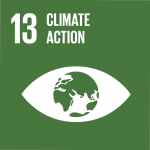Coastal districts need adaptation master plan in Bangladesh

Article by Meer Ahsan Habib
22 February 2022 - Speakers at the consultation on the Formulation of the National Adaptation Plan (NAP) underscored the need for a master plan covering all the coastal districts to address the challenges of climate changes and mainstream adaptation efforts. The consultation was held at Jhalokathi on 14 February 2022 at the conference room of the office of the Deputy Commissioner of Jhalokathi.
Additional Secretary of the MoEFCC and National Project Director of the NAP Formulation Project Mr Md Mizanul Haque Chowdhury was present as the Chief Guest while Mr Sanjay Kumar Bhowmik, Additional Secretary, MoEFCC was present as the Special Guest. Deputy Commissioner of Jhalokathi Mr Md Johor Ali chaired the consultation.
While delivering the keynote, Mr Malik Fida A Khan Executive Director of the CEGIS stated the importance of NAP. He said that NAP is a participatory and country-driven process and would address the medium to long term adaptation needs of Bangladesh and turn her into a climate-resilient country in the long run. He added that NAP would specifically address the climate vulnerability of the coastal regions, address the existing capacity gaps and establish a knowledge management system on climate change adaptation.
The consultation discussed major climatic risks in different coastal districts, adaptation strategies of the farmers and determinants of the choice of those strategies. Jhalokathi and other coastal districts are vulnerable to increasing salinity of its groundwater as well as surface water resources, especially along the coast, due to increases in sea level as a direct impact of global warming.
Participants opined that the livelihood of smallholder farmers is affected by climatic risks such as cyclones, increasing soil and water salinity, storm surges and heavy rainfall that can result in flooding and waterlogging. They stressed a master plan to address these challenges.
Mr Jashim Uddin Haider, Deputy Commissioner of Barisal said, “Scarcity of fresh water in the dry season, increased number of chars (small islands formed by silt), riverbank erosion salinity intrusion are key challenges posed by climate change”. “To turn Bangladesh into a welfare state, we must address these challenges” he maintained.
Mr Monirul Islam Talukder, President, Jhalokathi Chamber of Commerce and Industries said, “River erosion is killing us – stopping erosion should be our priority to make our development efforts sustainable.”
Mr Hemayet Uddin Himu, President, Committee of the Concerned Citizens said, “In addressing the challenges of climate change and mainstream adaptation efforts, Government should adopt a master plan covering all 19 coastal districts”.
Mr Mahmudur Rahman Parvez, Correspondent of Prothom Alo Jhalokathi said, “Waste management is a serious concern Jhalokathi which is emitting methane. If we do not urgently address this, it will wreak havoc on the environment and affect the livelihood of the people.”
Mr Rahim Reza, Jhalokathi Correspondent of Ajker Patrika said, “Although Jhalokathi is better covered by the forests compared to other districts in Bangladesh, the rampant establishment of sawmills is likely to turn this district into a deforested zone in the coming days”.
Mr A K M Azad Rahman, Programme Officer-Climate Change, UNDP said, “UNDP will provide all-out support to Bangladesh in combatting climate change”. “We are closely working with the government in designing sustainable projects in coastal regions”, he added.
Mr Sanjay Kumar Bhowmik said, “NAP will be the guiding policy document for our adaptation efforts and will supplement all the national-level planning. Through the consultation, we are delegating its ownership to you”. “For successful implementation of NAP, we will need a partnership with both at the national and local level”, he maintained.
Mr Md Mizanul Haque Chowdhury said, “NAP will be harmonized with the national planning process and supplement the Annual Development Programme, Five Year Plan, Bangladesh Delta Plan 2100, etc.” He emphasised on raising awareness to combat the effects of climate change, protect the environment and mainstream adaptation efforts.
Mr Md Johor Ali thanked the participants for their thought-provoking discussions and said, “Rainwater harvesting can be effecting adaptation strategy for the coastal regions”. He opined for smart designing of climate change related projects so that it brings the desired results.
The consultation was jointly organised by the Ministry of Environment, Forest and Climate Change (MoEFCC), Economic Relations Division (ERD) and United Nations Development Programme (UNDP) with support from the Green Climate Fund (GCF).
More than 60 representatives from Jhalokathi, Pirojpur, Patuakhali, Barisal district administrations, local government representatives, civil society representatives, sectoral experts, professionals, journalists and academia attended the event and provided their valuable comments and feedback to enrich the plan with locally specific climate adversities and adaptation needs.
***
Communications:
Md Mijanur Rahman, PhD, Project Manager, Email: md.mijanur@gmail.com
Meer Ahsan Habib, Communications Specialist – National Consultant Email: meer.habib@undp.org
Formulation and Advancement of the National Adaptation Plan Process in Bangladesh
